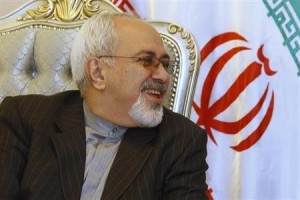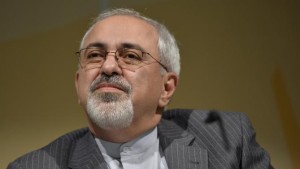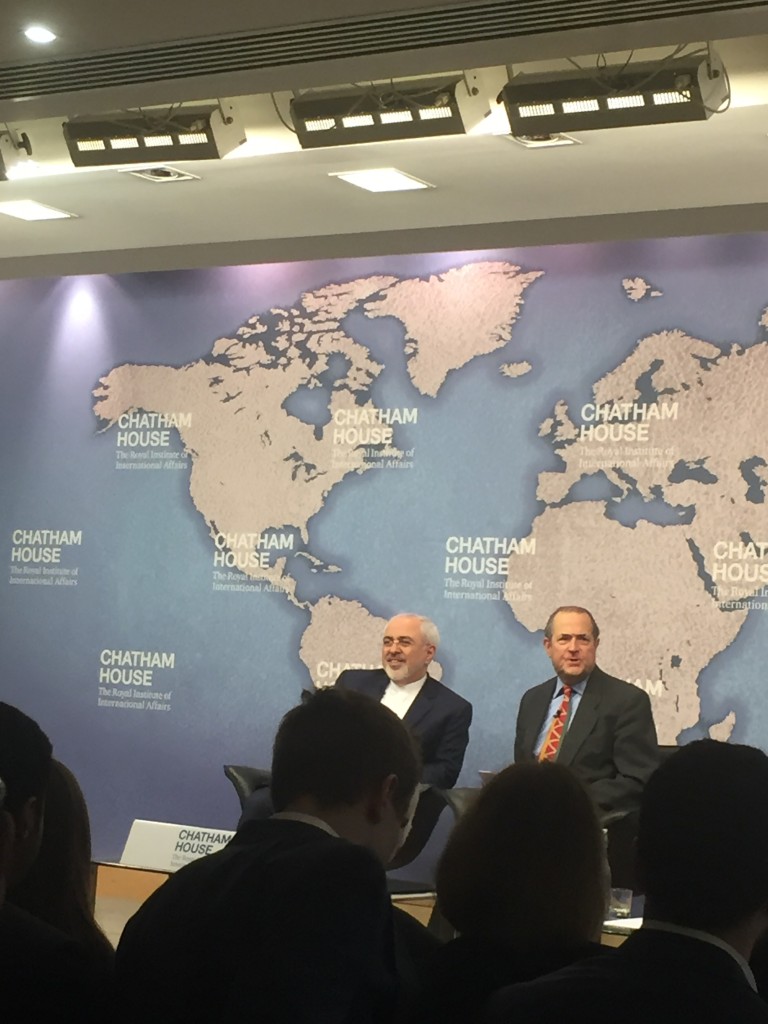How Mohammad Javad Zarif sells Iran: smiles, silences, chin calisthenics
On Thursday, I sat 10-15 feet away from Mohammad Javad Zarif, Iran’s foreign minister, watching the tics that have become a feature with him in three decades as a career diplomat.
 He nods a great deal and from time to time, he smiles – lining up both upper and lower teeth to meet neatly without overhang. Simultaneously, he lifts his chin to push his grinning face towards the listener. Lifting the chin could be considered pugnacious, smiling is supposed to give the opposite impression.
He nods a great deal and from time to time, he smiles – lining up both upper and lower teeth to meet neatly without overhang. Simultaneously, he lifts his chin to push his grinning face towards the listener. Lifting the chin could be considered pugnacious, smiling is supposed to give the opposite impression.
 Mr Zarif is the master of the multi-layered message. He manages to suggest both toughness and cuddliness, delivering a nod to your concerns about Iran (the hardliners’ dissent over nuclear deal; state sponsor of terrorism; regional bully; intimidation of journalists) while smiling them away. Along with a simple and well-judged explanation.
Mr Zarif is the master of the multi-layered message. He manages to suggest both toughness and cuddliness, delivering a nod to your concerns about Iran (the hardliners’ dissent over nuclear deal; state sponsor of terrorism; regional bully; intimidation of journalists) while smiling them away. Along with a simple and well-judged explanation.
An example:
Asked by Sir Richard Dalton, former UK ambassador to Tehran, about Iran’s incipient “resource nationalism”, Mr Zarif looked very serious.
In those 30 seconds of silence – so loud and meaningful – he drew the Chatham House audience into his consciousness. We were tightly focused on him It may have been more a Pinteresque pause (a gap in speech filled with the unsaid) than a dead stop, which stills everything in the middle of a show. And yet, it had its intended consequence. Like any good actor, Iran’s foreign minister was able to use silence to profound effect – we understood the complexity of what he was about to say, the inherent difficulties of the situation back home in Iran, where the bitter power struggle has moved into the business sector and hardliners are trying to undermine high-profile deals agreed since a landmark nuclear agreement came into force last month. We understood how carefully Mr Zarif had to choose his words – for absolute precision – considering what is happening at home.
According to the Financial Times of February 4, the day I was sitting not far from Mr Zarif, the situation in Iran is fluid. And angry. The paper said: “Conservatives, mostly concentrated in the parliament and media affiliated to the elite Revolutionary Guards, have questioned a number of contracts signed by the government of president Hassan Rouhani in the past fortnight, warning that the country’s natural and financial resources are at risk of being looted by western companies.”
The FT’s Tehran correspondent explained that “hardliners are trying to ensure that the moderates’ success does not translate into political gain ahead of elections later this month. Many conservatives also benefited economically from the sanctions regime and could lose out as foreign companies enter the country.”
This is why Iran’s oil is at the centre of the attacks against President Hassan Rouhani’s centrist government, which is determined to open up the country to foreign investment and aims to attract up to $50bn annually.
But in Chatham House on Thursday, Mr Zarif said he did not believe Iran would keep its business and investment options chained. Of course, there will be dissension, he agreed. There’s dissension here, he said cleverly, “Iran is not a monolith. We have a plurality of voices and opinions.” And he went on to ask why the West believed that Iran should have just one opinion when you don’t have just one opinion here (in Britain)?
It was an unanswerable question.
Mr Zarif finished up by smiling, lining up his teeth, lifting his chin and sticking it out.
(Tomorrow: How Mohammad Javad Zarif sells Iran: by apparent candour on no press freedom)


